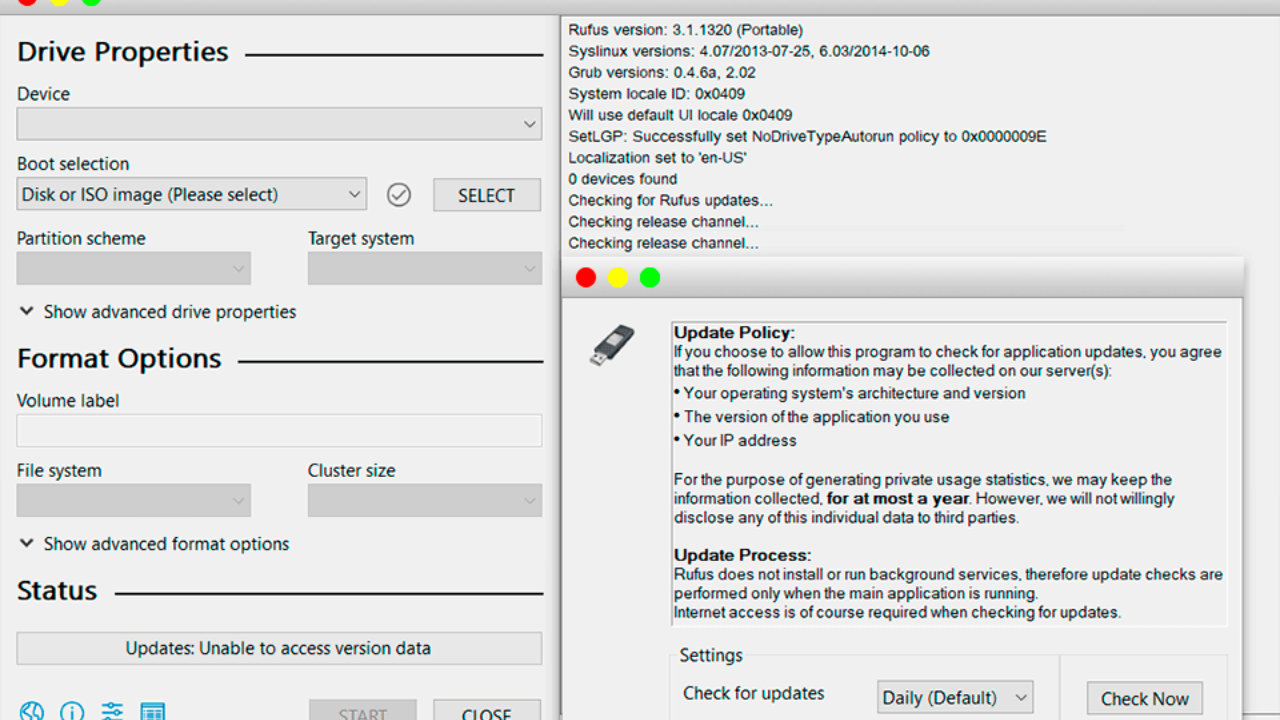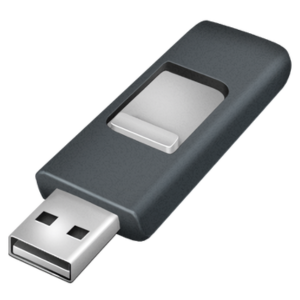Rufus Latest Version Download Free
Rufus Latest Version Download is a free open-source software utility designed to create bootable USB flash drives. The latest version of Rufus is an advanced and user-friendly tool that allows users to format and create bootable USB drives for various purposes, including installing or upgrading operating systems, running diagnostics, and more. Rufus is widely recognized for its speed, simplicity, and versatility, making it a popular choice among users who require a reliable solution for creating bootable USB drives.
The software is compatible with various operating systems, including Windows and Linux, and supports a wide range of ISO files and disk image formats. It is particularly useful for users who need to install or repair operating systems on computers that lack an optical drive or for those who prefer the convenience and speed of USB installations.

Rufus Latest Version Download
Direct Link
- Creating Bootable USB Installations: Rufus is primarily used to create bootable USB drives for installing or upgrading operating systems. Users can download the latest version of Rufus to quickly and efficiently transfer the contents of an ISO file to a USB flash drive, turning it into a bootable medium that can be used to install or repair an operating system.
- System Recovery and Diagnostics: In addition to OS installations, Rufus is valuable for creating bootable USB drives for system recovery and diagnostic purposes. Users can include tools and utilities for troubleshooting and repairing systems, making it a handy tool for IT professionals and enthusiasts.
Rufus Latest Version Download is an essential tool for anyone who needs to install or repair operating systems, run diagnostics, or create bootable USB drives for various purposes.
Key Features Of Rufus Download For Window 64 bit
- User-Friendly Interface:
- Rufus features a straightforward and intuitive user interface, making it accessible to users with varying levels of technical expertise.
- Fast and Efficient:
- Rufus is known for its speed and efficiency. It can quickly create bootable USB drives, allowing users to save time during the installation or recovery process.
- Support for Various File Formats:
- The software supports a variety of file formats, including ISO, IMG, DD, and others, providing flexibility for users working with different types of disk images.
- Partition Scheme and File System Options:
- Rufus allows users to choose from various partition schemes, such as MBR and GPT, and file systems, including FAT32, NTFS, and exFAT, enabling compatibility with different systems and devices.
- Bad Block Detection:
- Rufus includes a bad block detection feature that helps identify and manage bad sectors on a USB drive, enhancing the overall reliability of the bootable medium.
- UEFI and Legacy BIOS Support:
- Rufus supports both UEFI and Legacy BIOS boot modes, ensuring compatibility with a wide range of systems and devices.
- Persistent Storage:
- Users can create bootable USB drives with persistent storage, allowing them to save data and settings between sessions, making it useful for creating portable operating systems.
- Customizable Cluster Size:
- Rufus allows users to customize the cluster size when formatting the USB drive, providing flexibility based on specific requirements or compatibility considerations.
- Multilingual Support:
- The software is available in multiple languages, catering to a global user base and ensuring that users can navigate and use Rufus in their preferred language.
What’s New?
- Improved Compatibility:
- The latest version of Rufus App may include improvements to compatibility with a broader range of USB drives and devices, ensuring reliable performance across different hardware.
- Enhanced User Interface:
- Updates may bring improvements to the user interface, making it more modern, intuitive, and user-friendly.
- Added Features for Customization:
- New features may be introduced to enhance customization options, allowing users to tailor the bootable USB creation process to their specific needs.
- Optimized Performance:
- The latest version may bring performance optimizations, ensuring that Rufus continues to provide fast and efficient creation of bootable USB drives.
- Bug Fixes and Stability Improvements:
- Updates typically include bug fixes and stability improvements, addressing any identified issues from previous versions and ensuring a smooth user experience.
System Requirements Of Rufus For Mac
- Operating System:
- Windows 7.
- Processor:
- A modern processor capable of running the selected operating system smoothly.
- RAM:
- Minimum 2 GB of RAM.
- Hard Disk Space:
- 50 MB of free disk space.
- USB Drive:
- A USB flash drive with sufficient capacity for the operating system or tools being transferred. The capacity requirements depend on the size of the ISO file or disk image.
How to Install Rufus Latest Version For Mac
- Download Rufus:
- Visit the official Rufus website or a trusted source to download the latest version of the software.
- Run the Installer:
- Double-click the downloaded installer to launch the installation wizard.
- Follow On-Screen Instructions:
- Follow the on-screen instructions provided by the installation wizard. Agree to the terms and conditions, choose the installation location, and customize any preferences if needed.
- Complete Installation:
- Allow the installer to complete the installation process.
- Launch Rufus:
- After installation, launch Rufus from the desktop or start menu.
- Select USB Drive:
- Insert the USB drive into the computer, and Rufus will detect and display it in the device list.
- Choose ISO File:
- Select the ISO file or disk image that you want to transfer to the USB drive.
- Configure Settings:
- Configure settings such as partition scheme, file system, and cluster size based on your preferences or the requirements of the target system.
- Start the Process:
- Click the “Start” button to initiate the process of creating the bootable USB drive. Rufus will format the USB drive, copy the contents of the ISO file, and make it bootable.
- Completion and Eject:
- The process is complete, Rufus will indicate success. Eject the USB drive safely.
Conclusion
Rufus Latest Version Download stands as an essential tool for users who need to create bootable USB drives for installing or upgrading operating systems, running diagnostics, or other system recovery purposes. The software’s key features, including its user-friendly interface, speed, and support for various file formats, contribute to its popularity among both novice and experienced users.
